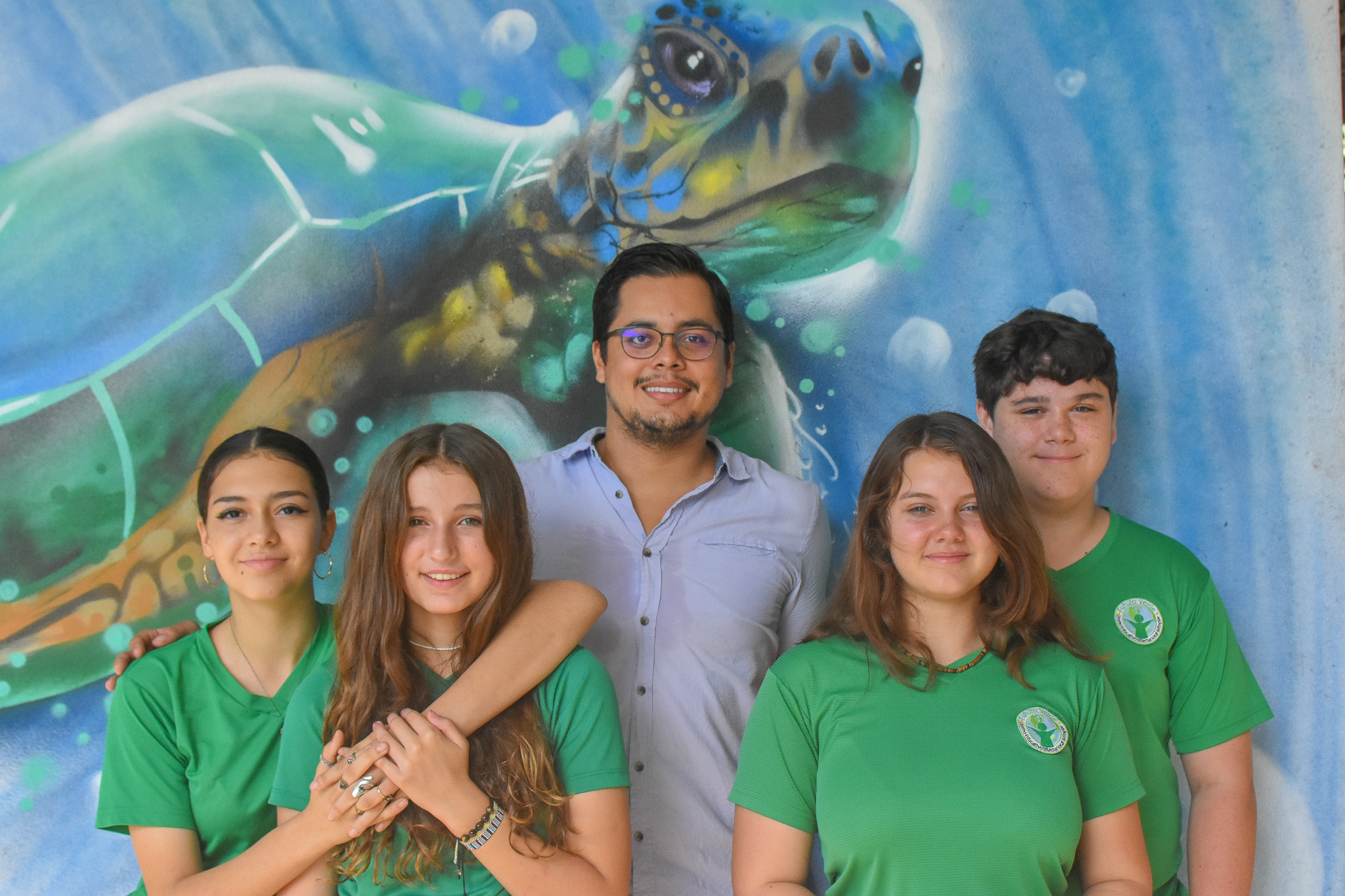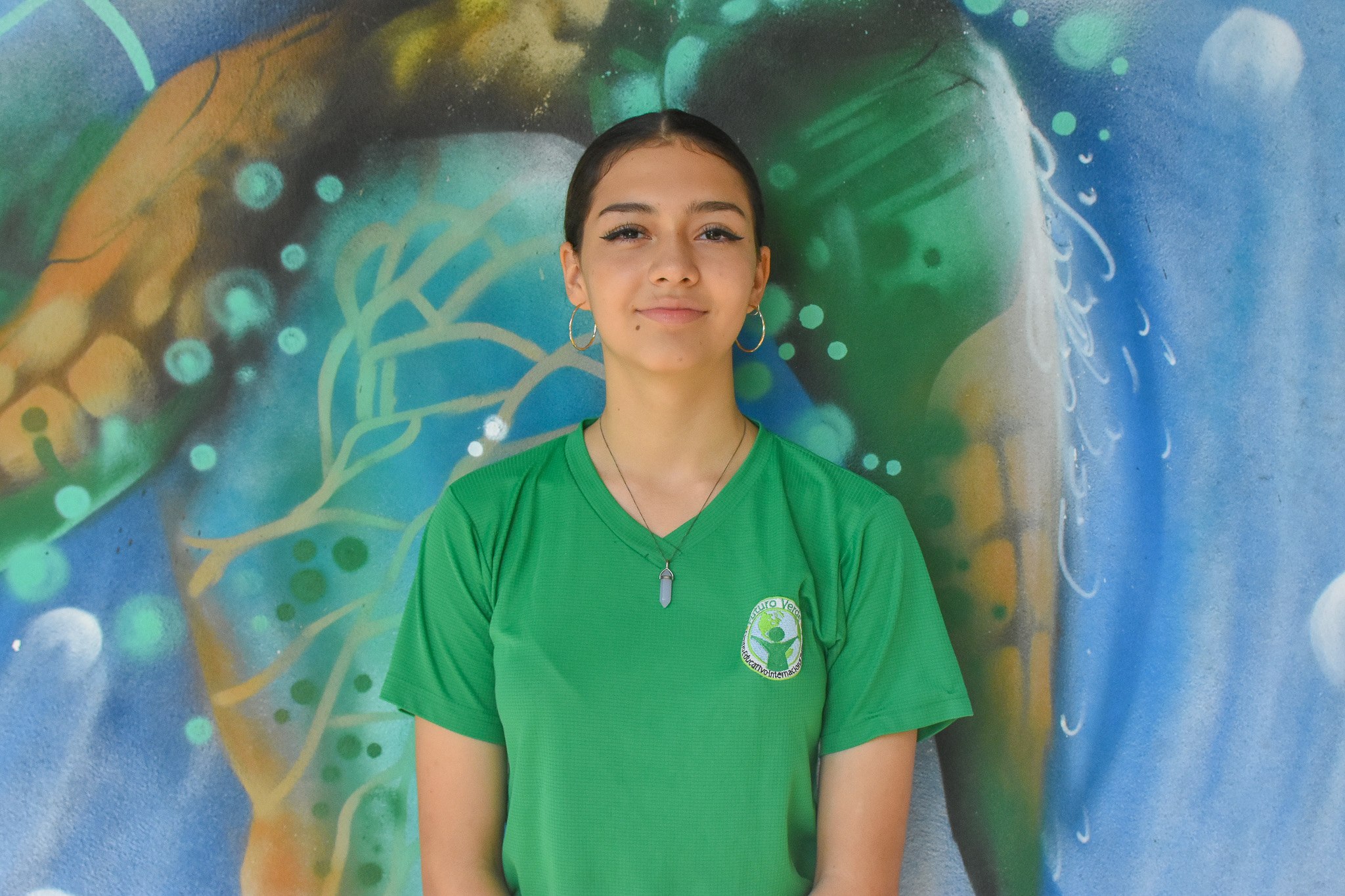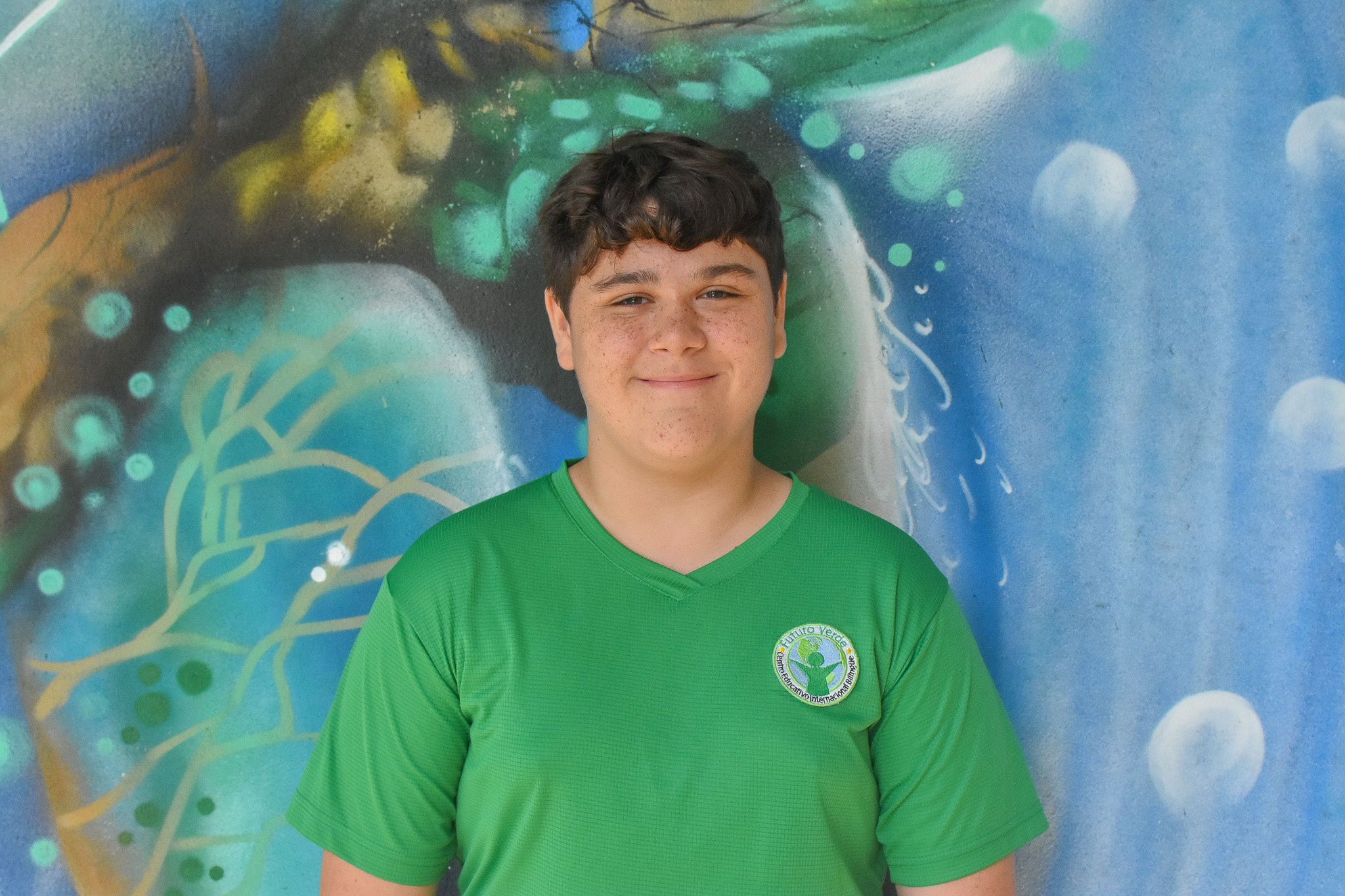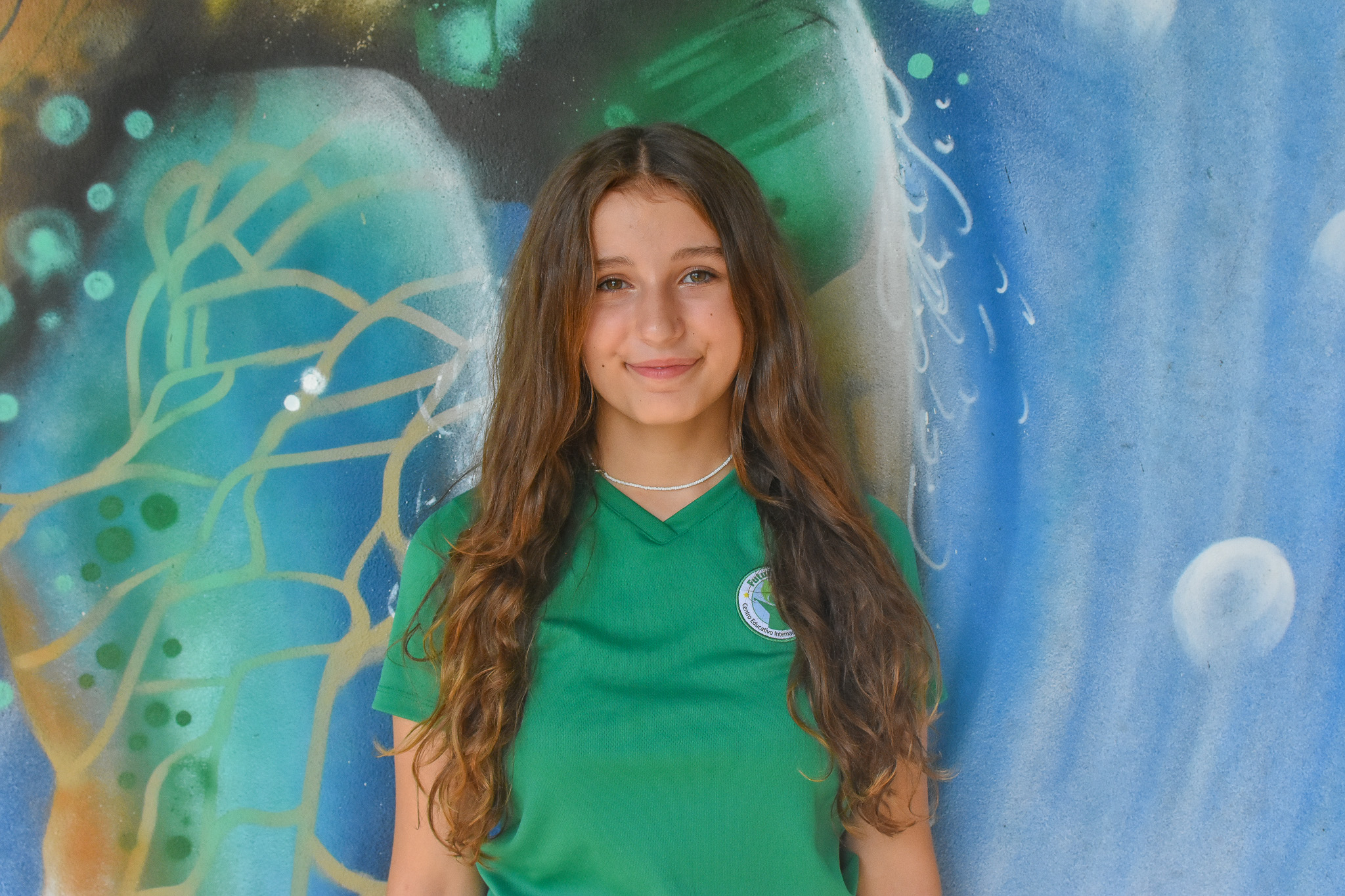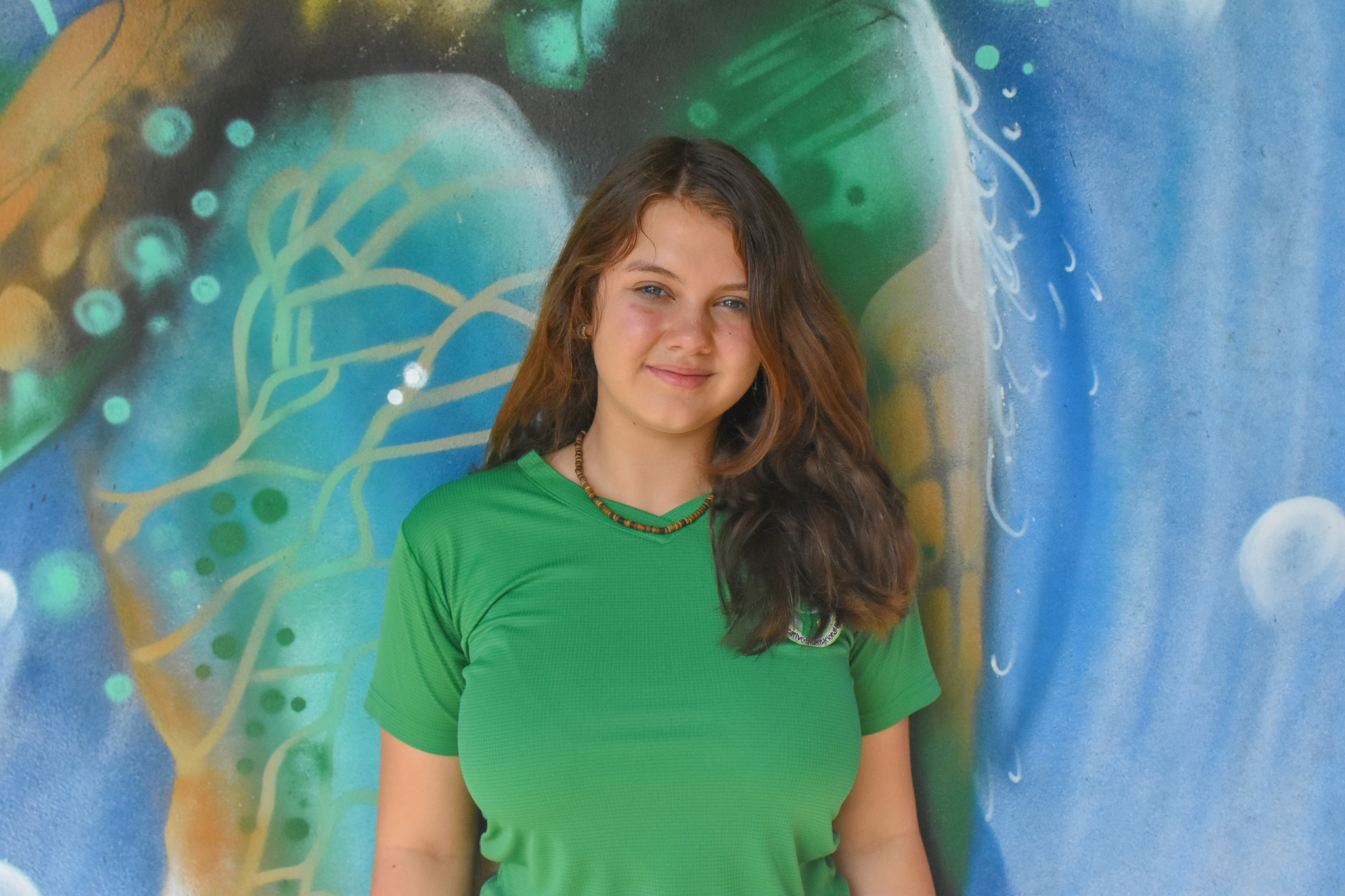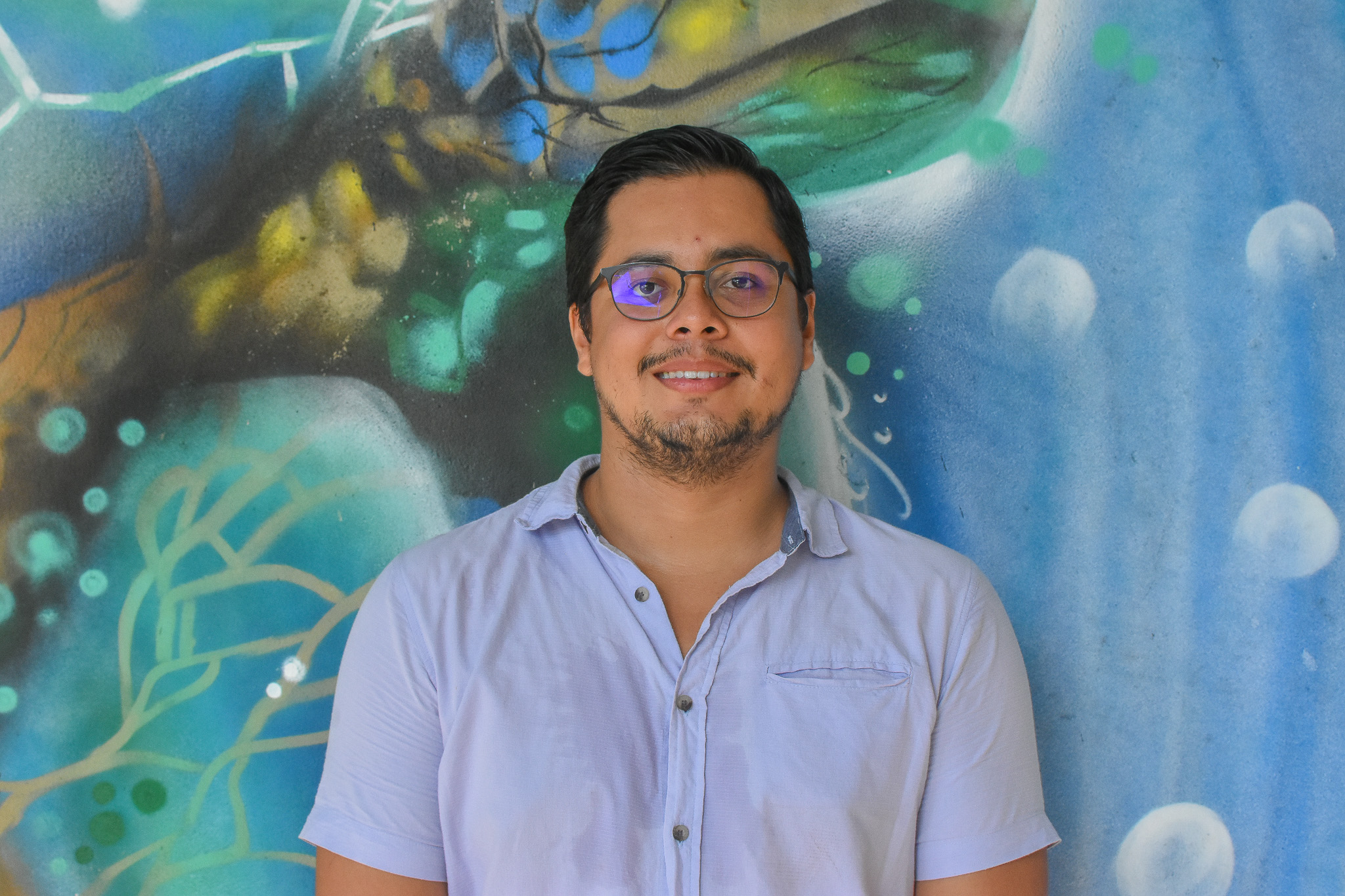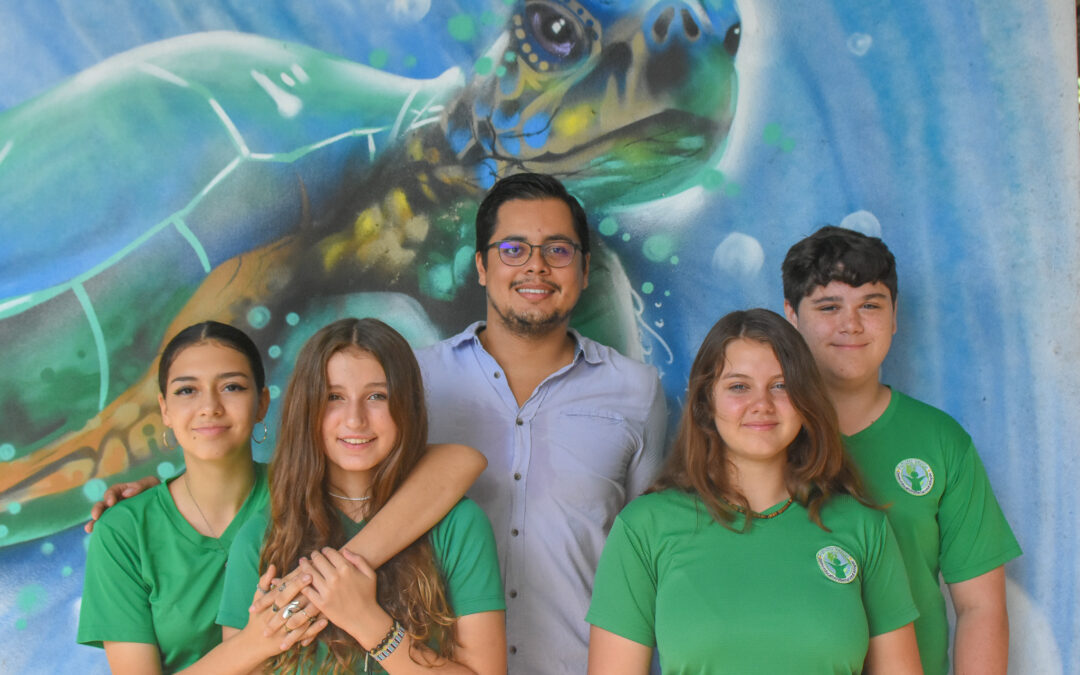
by Noelia | Dec 13, 2022
Ninth grade students Lucila Booth, Sara Labrada and Jeremy Shaw, as well as tenth grade student, Samantha Fonseca, will represent Futuro Verde and Costa Rica, as part of the delegation that the country will send to the international conference of the Model United Nations, FERMUN 2023. This conference has been organized since 2012 by the Lycée International de Ferney-Voltaire, located in France, right on the border with the Swiss city of Geneva, which is where, from January 11 to 13, the event that will bring together 500 students from 43 countries around the world will be held.
Each year, the conference is sponsored by an institution linked to the United Nations system. The 2023 edition is sponsored by the World Meteorological Organization, and the seven discussion groups during the event will have as a transversal axis, proposals to mitigate the effects of Climate Change. The debates will be in Spanish, English and/or French, and will have all the conditions that diplomats work with in real life, including: debates in rooms of institutions associated with the United Nations and simultaneous translation.
All of this means that Lucila, Samantha, Jeremy and Sara, along with six other students between the ages of 15 and 19, accompanied by three faculty advisors, will represent Costa Rica at one of the most renowned events in the Model United Nations world. The event is an invaluable opportunity to continue their academic growth in the areas of research, debate and collaboration on global issues. It is also an opportunity to broaden their cultural horizons in a first class experience.
It is time to thank all the Futuro Verde families and staff who, in one way or another, have placed their trust in a program that is new to the institution. Our students deserve to have access to world-class training opportunities. This, in the isolated conditions in which they grow up, requires an extra commitment on the part of families and administration. I know that this type of activity is not for all students, but let this experience serve to show that the commitment to excellence leaves, little by little, fruits that can change lives.
Teacher Jose Pablo.
Model United Nations
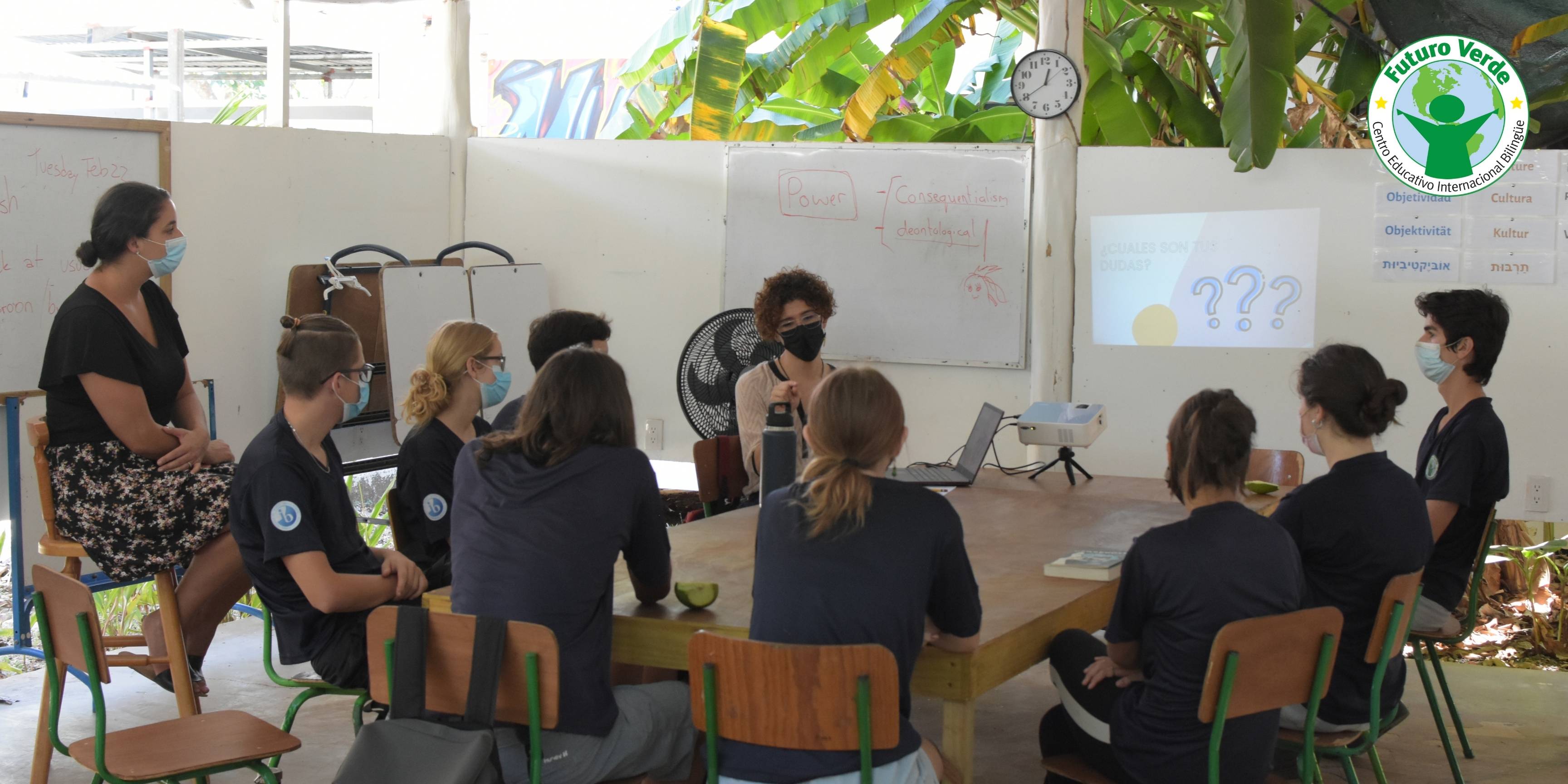
by Angie Briceño | Jun 7, 2022

At the end of the 2017 school year, Futuro Verde received its certification as an International Baccalaureate World School. The International Baccalaureate Organization evaluates schools that acquire this certification every five years. It has been five years since our certification and for some months now we have been working on preparing for the evaluation by the International Baccalaureate Organization.
But, what does the IB Diploma Program evaluation process for schools around the world consist of?
According to the International Baccalaureate Organization, the primary objective of IB program evaluation is to help schools continually develop their capacity to implement IB programs in order to have a greater effect on student outcomes through the development of teaching and leadership practices (2).
The evaluation of the Diploma Program in the school engages the school in a process of reflection that allows us to understand which aspects of the program are being developed effectively and which need further development. This reflection is done in conjunction with students, families, the board of directors, teachers and staff members who are directly involved in the implementation of the program.
The evaluation consists of three distinct parts:
- The preliminary review, where the school reviews and updates the information that was provided at the beginning of the certification process. This section includes a survey of parents with children who are attending, have attended or will attend the Diploma Program the following school year.
- A process of self-evaluation, collaboration and reflection in which different stakeholders participate and where families and students are invited to participate in the process.
- Finally, a visit to the school, which in our case will take place on April 19, 20 and 21, 2023.
Once this evaluation process is completed, the IB Organization provides the school’s leadership team with the findings of the process and recommendations for the school.
For those families and students directly involved in the evaluation process, a form will be sent to them so that they can collaborate with the reflection process.
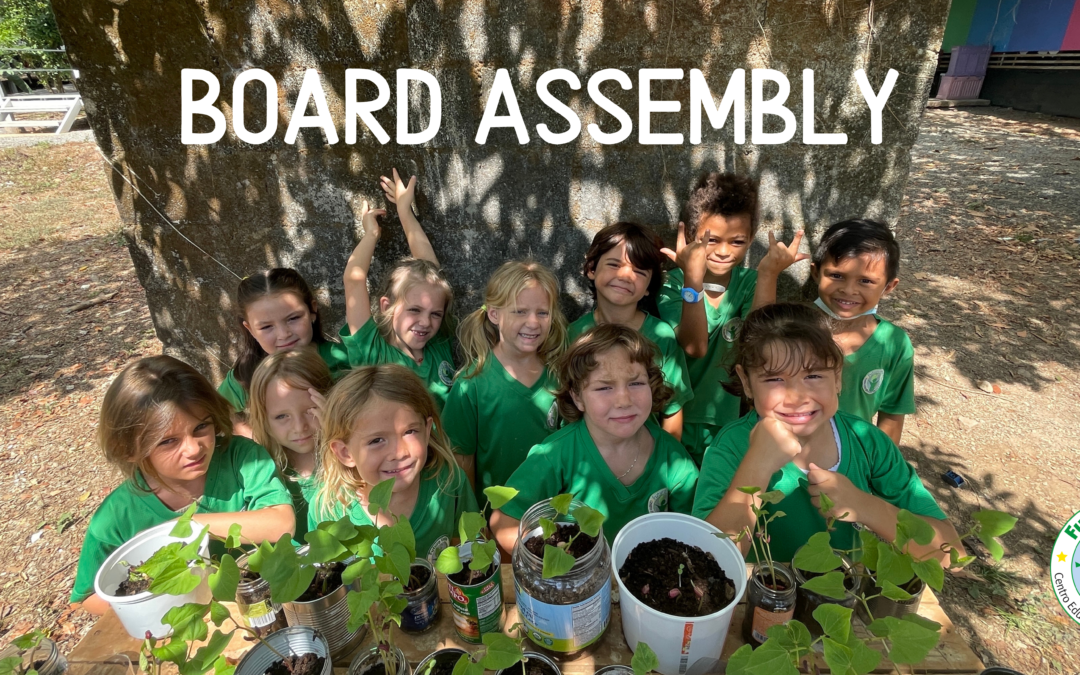
by Jennifer Middleton | May 25, 2022
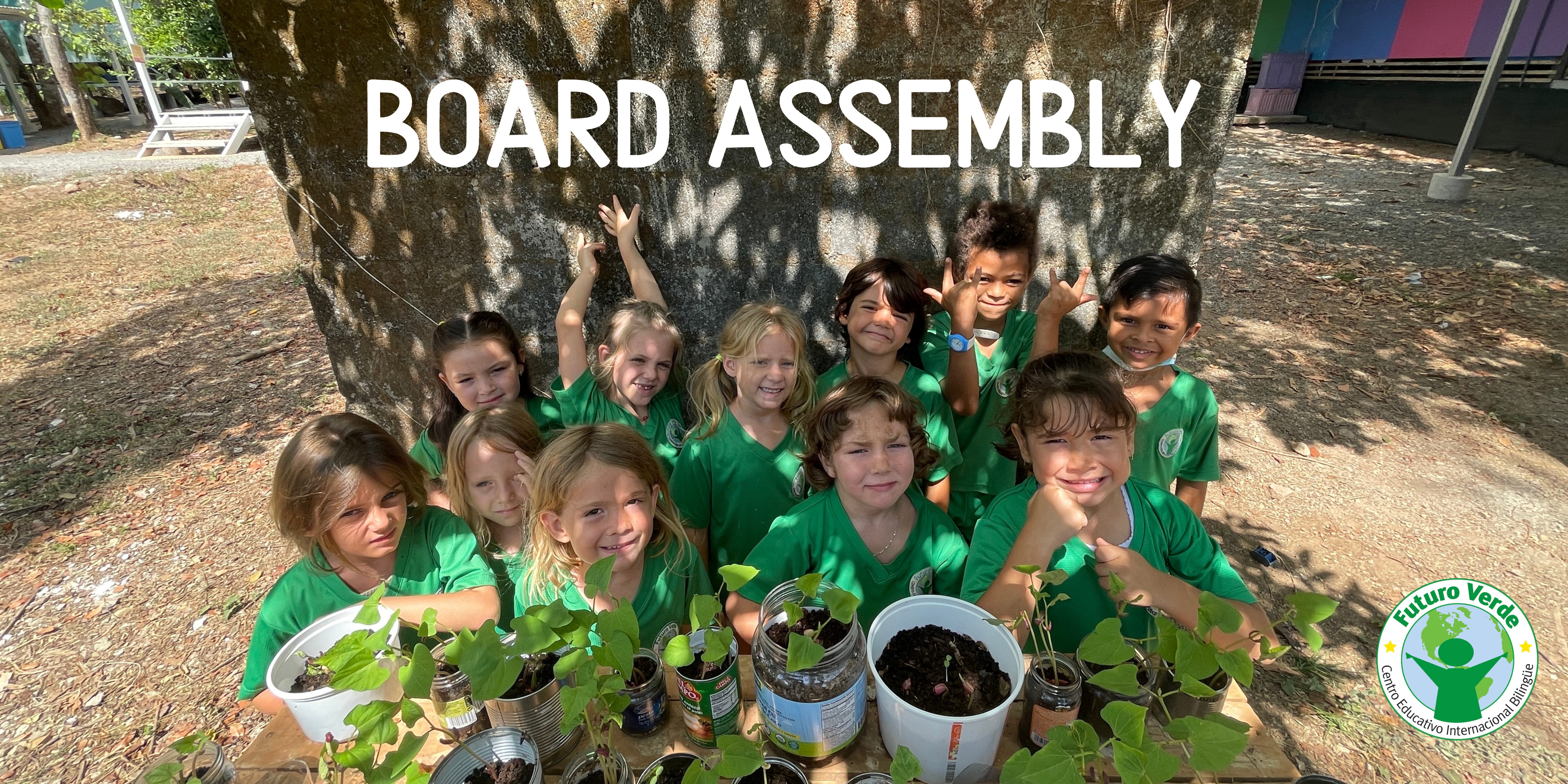
Hello Parents!
This article is to provide you with an overview of the extraordinary assembly meeting that took place this past April 20th 2022 at 4:00 pm via Zoom.
The full presentation is attached if you would like to review:
- Overview of the Extraordinary Assembly
- Strategic Planning & Teacher Retention
- Financial Report
- Vote for tuition increase
- Results: 75% in favor of a 15% increase in tuition rates, compared to 25% in favor of a 20% increase in tuition rates.
- According to the vote, there will be a 15% increase to tuition rates for the 2022-2023 school year.
Questions & Answers from the meeting:
- What does it mean to be bilingual? What English and Spanish is offered, native versus non-native?
Our immersion program involves teaching content in both languages and students being exposed to both English and Spanish languages throughout the day. We offer English language arts and Spanish language arts. We do not offer English or Spanish as second language courses due to the fact that we are a dual immersion school and the idea is that students acquire the language through content.
- If people (teachers and students) come and go, how do you guarantee academic rigor? Who oversees this ?
The director and the administration team are responsible for ensuring rigor and fluidity through curriculum. Each course has a study plan and we are currently in the process of updating and strengthening the scope and sequence of each course. We are also in the process of reinforcing internal systems so that these transitions are not so disruptive.
- What type of teachers do you want to attract? What is the focus ?
We want to recruit all types of teachers which include: Nationals, Residents, and International career teachers. The focus is on all, however, as mentioned in the presentation, it is difficult to hire international teachers due to many factors such as low pay, lack of affordable housing, etc. We will work to create packages to attract international teachers. Simultaneously, we will focus on hiring qualified teachers who already live in Costa Rica, whether they are national or foreign hires. It is likely that if they already live in Costa Rica or in the region, they will be more established and accustomed to what it is like to live in Costa Rica.
- Would creating part time positions be an option?
Our experience has been that teachers who are only here part time are only partly committed to the school and have been disconnected to the day to day operations, mission and vision of the school. Part time support positions could be an option, but part time teaching positions are not likely.
- Could the school facilitate after hours tutoring where teachers can charge an hourly rate?
Some of our teachers provide tutoring outside the school, but this is a service that is not provided by the school but by the teacher. Currently, the school only offers FARO centers.
- Is there concern that once the world opens up again, those numbers come down?
School expansion and contraction is a natural phenomenon all schools face over time. Instead of being concerned, we are exercising caution and strategic planning to ensure our finances are sustainable through these natural cycles.
- Is the focus on investing in more buildings, that in a few years will probably be moved the best priority? Or should we focus on inward growth instead?
The Board is currently focused on both facilities and infrastructure. However, the reality we face in the coming academic year is that we are limited on instructional space to operate all of our programs. New construction projects are now being evaluated for their impact on our natural space, ability to relocate, and cost.
- Instead of more class rooms, should we invest first in housing for teachers to support the current school?
The costs to build a residential village for teachers is not a viable financial option. Rough financial projections of the two projects are not even comparable. Unless we are able to secure a major donation or corporate sponsorship, we simply do not have the capital to take on a project that scale.
- If growth this big is a guessing game, why focus on expansion?
The focus of the current Board is not expansion. Our priority remains to provide the best academic program possible with the resources at our disposal. If the student population decreases in the coming years, the investment in our facilities will continue to provide value to the school community. We will NOT have empty classrooms.
- Have you thought about offering a third option with a lower increase to loyal students that have been with the school for many years and a higher increase to new students?
We HAVE NOT considered a third tuition option for “loyal” students, but will take the suggestion into consideration as we develop our strategic plan for the coming 5 years.
- Have you considered (projected) the increased tuition may result in some families exiting the program, potentially altering your projected growth figures for upcoming years?
Yes, we have factored in the attrition of our student population as a result of the tuition increase. For this reason, it is imperative we have a tuition base that can cover our operating expenses and establish a fiscal reserve in the event of a significant decrease in enrollment
If you have any questions or concerns, please feel free to contact junta@futuro-verde.org.
Sincerely,
Futuro Verde Board of Directors
LINK
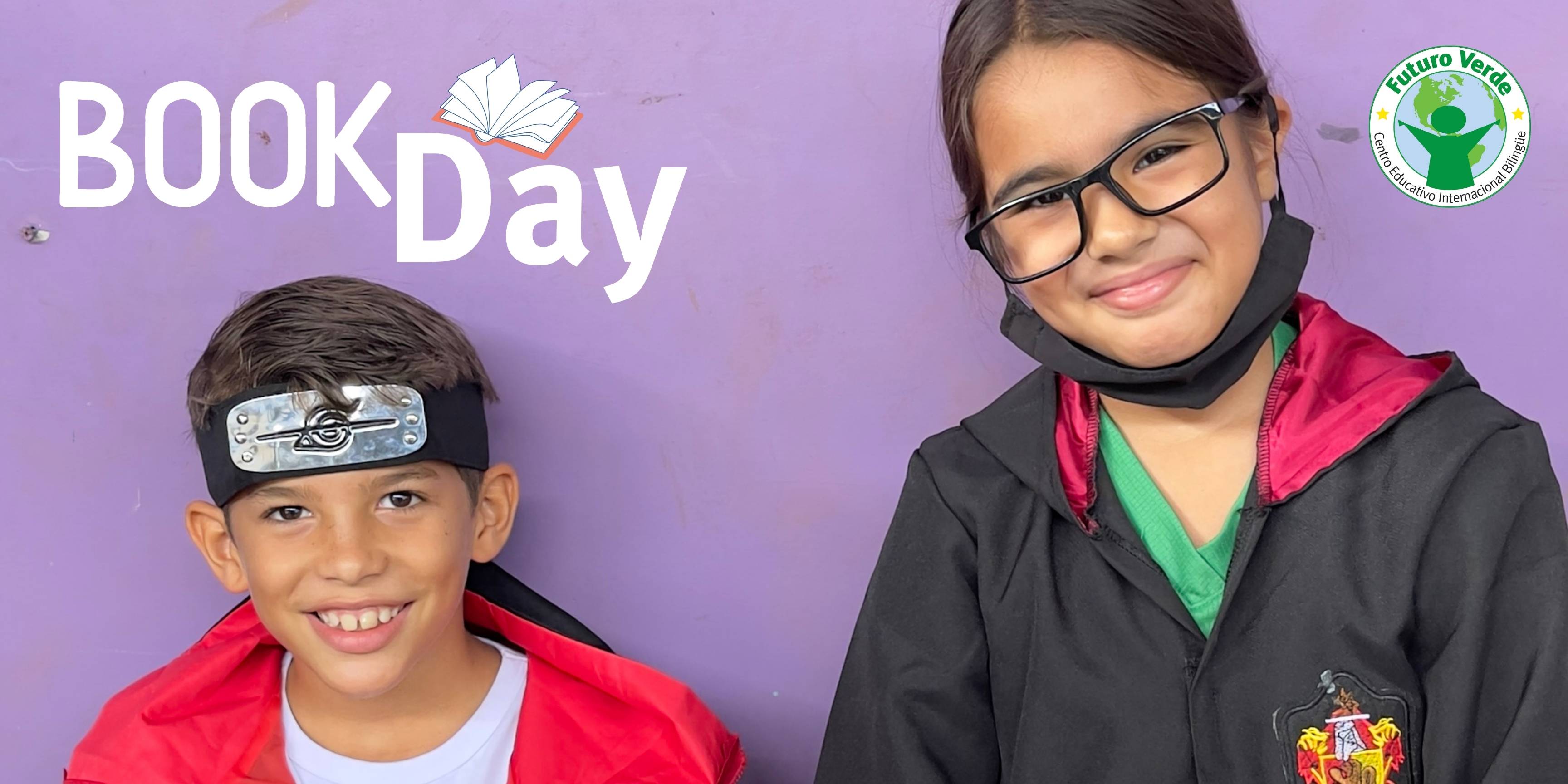
by Hileyn | May 1, 2022

This year, the International Book and Rights Day was celebrated at Futuro Verde by carrying out different activities for preschool, elementary and middle school. At this point, the celebration took place from April 18 to 25 and was attended by students, teachers and parents.
To begin with, the preschool students had the opportunity to receive a visit from parents during the library class, in which a Storytelling session was held. In this activity, parents were able to share stories and read stories to the student population. Some of the topics that the parents discussed with the students were the value of respect, friendship, good behavior and the importance of caring for the environment. In addition, the dynamic was accompanied by manual activities aimed at the students through which they were able to put into practice the learning acquired through the visit and the stories of the guests.
On the other hand, the primary school students took advantage of the library classes to learn about the creation of books, their parts and binding. In this sense, throughout the week, students from first to third grade had the space to create their own book; therefore, each student invented a story, created the cover of their book, added the pages, bound it and made the illustrations of their story. On the other hand, the fourth grade students divided into groups and researched various topics related to literature. The fifth grade students, in turn, studied the history of the book in the library class and made objects such as papyrus and parchment. Meanwhile, sixth grade students, in pairs, chose books about which there are films or audiovisual resources, each team made a comparison between the two materials and exhibited it in the library class.
For their part, the Information Science classes became a space for high school students to learn how to clean a book in different ways. In other words, the students learned how to do dry cleaning and aqueous cleaning of the paper. In this regard, students were given the opportunity to differentiate when a book can be washed with water and when it is better to clean it with other types of materials, such as an eraser and absorbent cotton. Thus, the students were able to perform both types of cleaning. In addition, the student population learned how to regulate the pH of the paper.
In sum, to culminate the week of celebration of the book and copyright day, a parade of literary characters was held among all the members of Futuro Verde. Therefore, students and teachers dressed up as their favorite literary characters, each grade had the space to parade with their costumes and the activity ended with the awarding of prizes for the best costumes among teachers and students. Thus, that day characters such as Socrates, Alice in Wonderland, Little Red Riding Hood, Cinderella and her stepsisters were seen in the corridors of the school.

by Noelia | May 1, 2022
Este año, el día internacional del libro y los derechos se celebró en Futuro Verde mediante la realización de diferentes actividades para Preescolar, Primaria y Secundaria. En este punto, la celebración tuvo lugar del 18 al 25 de abril y contó con la participación de estudiantes, docentes y padres de familia.
Para empezar, los estudiantes de Preescolar tuvieron la oportunidad de recibir la visita de los padres y madres de familia durante la clase de biblioteca, en la cual se realizó un espacio de Storytelling. En esta actividad, los padres y madres de familia pudieron compartir historias y leer cuentos a la población estudiantil. Así las cosas, algunos de los temas que abordaron los padres de familia con los estudiantes fueron el valor del respeto, la amistad, el buen comportamiento y la importancia de cuidar el medio ambiente. Además, la dinámica estuvo acompañada de actividades manuales dirigidas al estudiantado mediante las cuales pudieron poner en práctica los aprendizajes adquiridos a través de la visita y las historias de los invitados.
Por otro lado, los estudiantes de Primaria aprovecharon las clases de biblioteca para aprender sobre la creación de libros, sus partes y el encuadernado. En este sentido, a lo largo de la semana, los estudiantes de primer a tercer grado tuvieron el espacio para crear su propio libro; por lo tanto, cada estudiante inventó una historia, creó la portada de su libro, agregó las páginas, lo encuadernó y realizó las ilustraciones de su historia. Por otro lado, los estudiantes de cuarto grado se dividieron en grupos e investigaron sobre diversos temas relacionados con literatura. A su vez, los estudiantes de quinto año, estudiaron en la clase de biblioteca la historia del libro y elaboraron objetos como el papiro y el pergamino. Mientras, los estudiantes de sexto, en parejas, escogieron libros de los cuales existen películas o recursos audiovisuales, cada equipo realizó una comparación entre ambos materiales y la expusieron en la clase de biblioteca.
Por su parte, las clases de Ciencias de la Información se convirtieron en un espacio para que los estudiantes de secundaria pudieran aprender a limpiar un libro de distintas maneras. Dicho de otra forma, el estudiantado aprendió a realizar una limpieza en seco y una limpieza acuosa del papel. A propósito de lo anterior, a los estudiantes se les brindó la oportunidad de diferenciar cuándo un libro se puede lavar con agua y en qué momento es mejor realizar una limpieza con otro tipo de materiales, como borrador y algodón. Así las cosas, el estudiantado pudo realizar ambos tipos de limpieza. Además, la población estudiantil aprendió a regular el pH del papel.
En suma, para culminar con la semana de celebración del día del libro y los derechos de autor, se realizó un desfile de personajes literarios entre todos los miembros de Futuro Verde. Por lo tanto, los estudiantes y profesores se disfrazaron de sus personajes literarios favoritos, cada grado tuvo el espacio para desfilar con sus disfraces y la actividad terminó con la entrega de premios para los mejores disfraces entre docentes y estudiantado. De ahí que ese día se vieron por los pasillos de la escuela a personajes como Sócrates, Alicia en el país de las maravillas, Caperucita roja, Cenicienta y sus hermanastras.
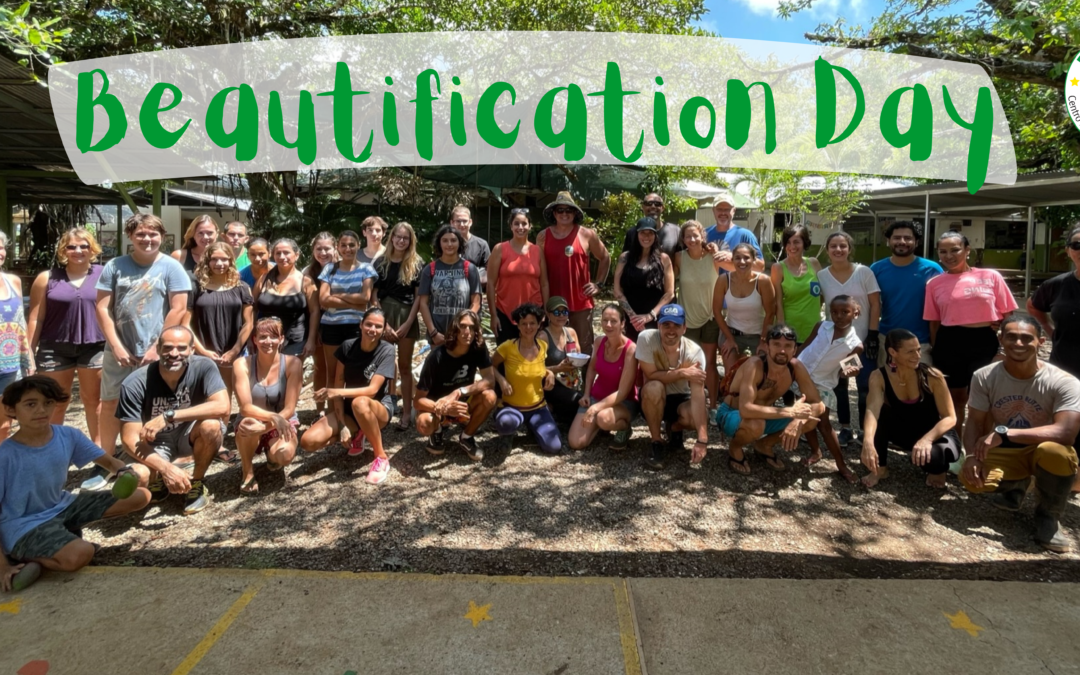
by Jennifer Middleton | Apr 30, 2022
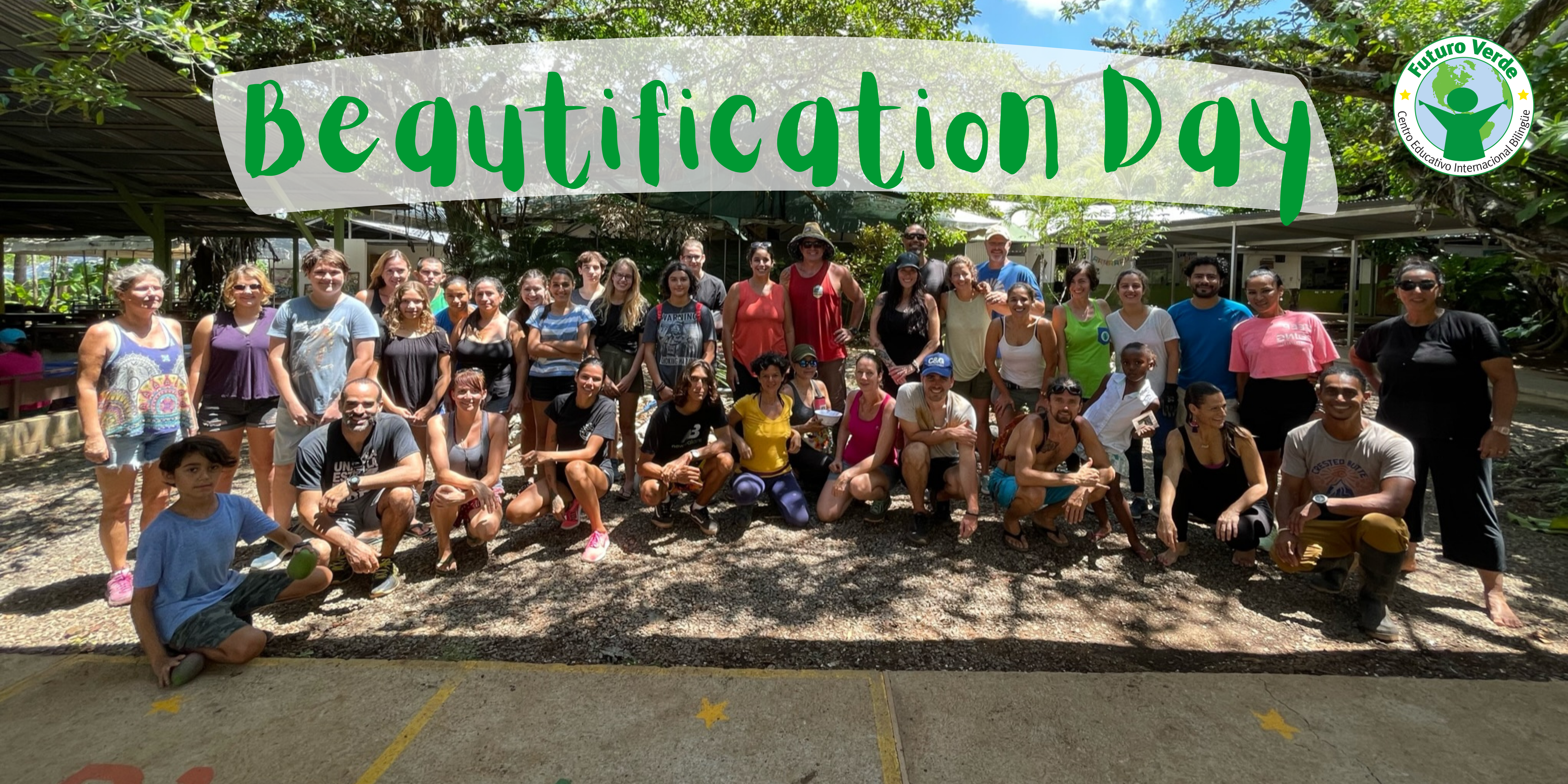
With the help of our volunteers, we completed or made significant progress on the following projects:
Greywater and Rainwater Harvesting
Volunteers assisted with the digging of a banana circle and improvements to the drainage of water along our new dry creek. Grey water pvc pipes from handwashing sinks were rerouted underground to eliminate tripping hazards and irrigate the food forest. Lots of dirt was moved for this project, making it one of the most challenging projects of the day!
Food Forest Maintenance
Volunteers cleaned up the food forest, rebuilt the pathways, and reinforced the planter beds with tree trunks. The bananas and other plants were pruned and compost was added. In addition, volunteers also planted a variety of plants such as vetiver, turmeric, lemon grass and yuca.
Painting and General Cleanup
Volunteers on this project focused on painting the gates at the front of the school and staining all of the wood at the entry of the school. Volunteers also focused on general cleanup throughout the campus, removing trash and touching up green and white paint.
We look forward to hosting another Beautification event in May to focus on finishing the remaining projects such as building the compost bin, creating a fence for the school garden, and completing the rainwater infrastructure improvements.
A huge thanks to Green Wave for the donation of materials for our compost bin and providing permaculture expert Irene to assist in implementing the design principles on campus. Most importantly, thanks to the students, parents, teachers and staff who volunteered their time to make this event a success!

